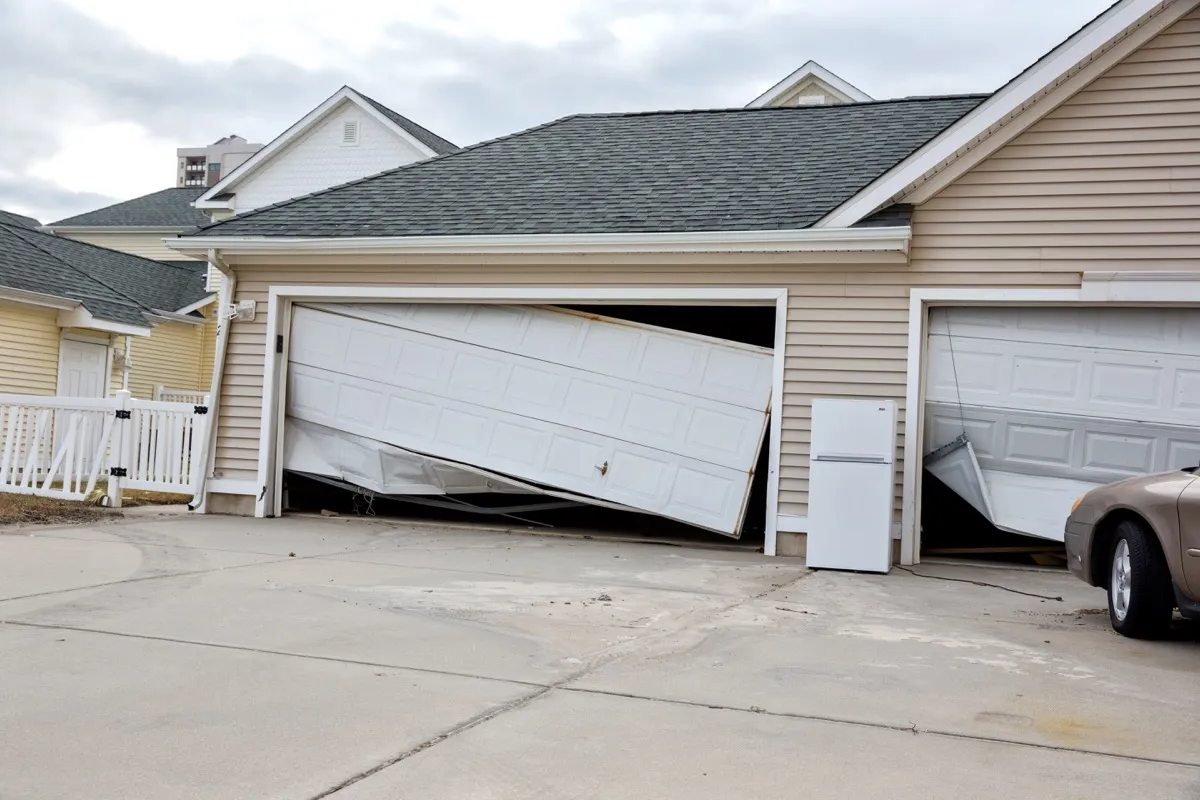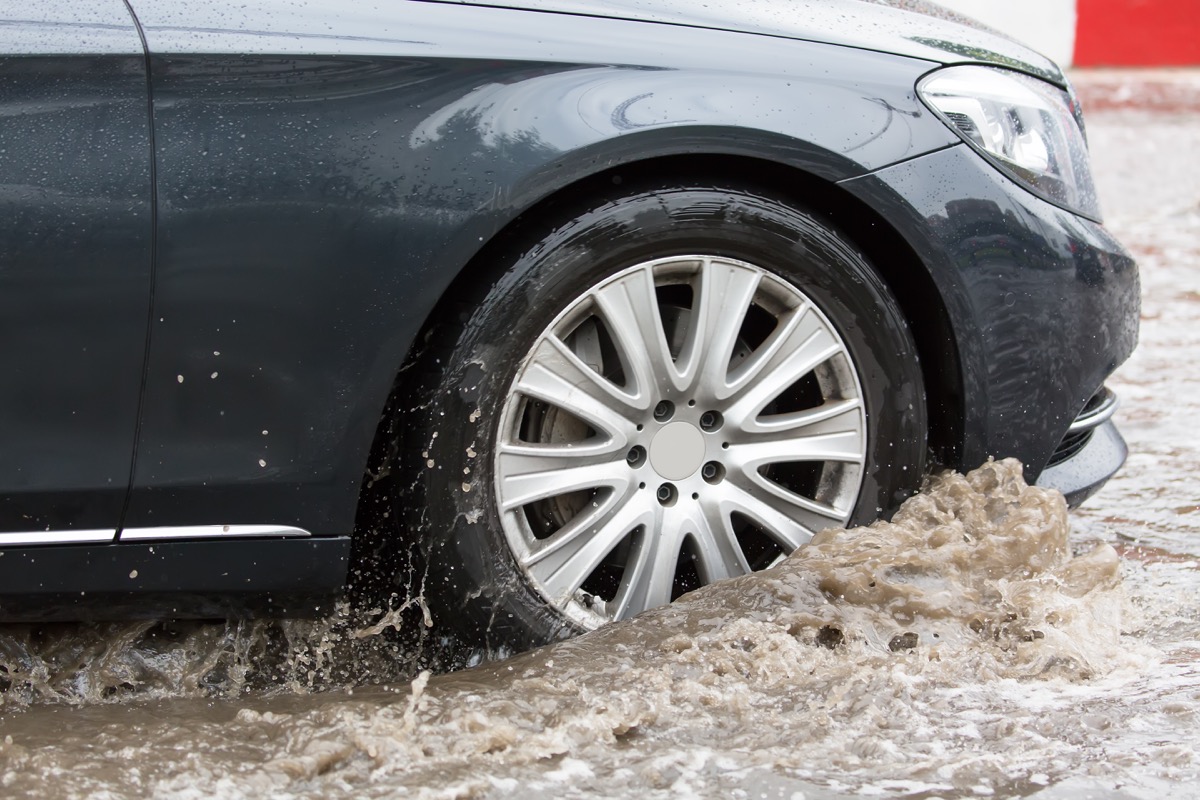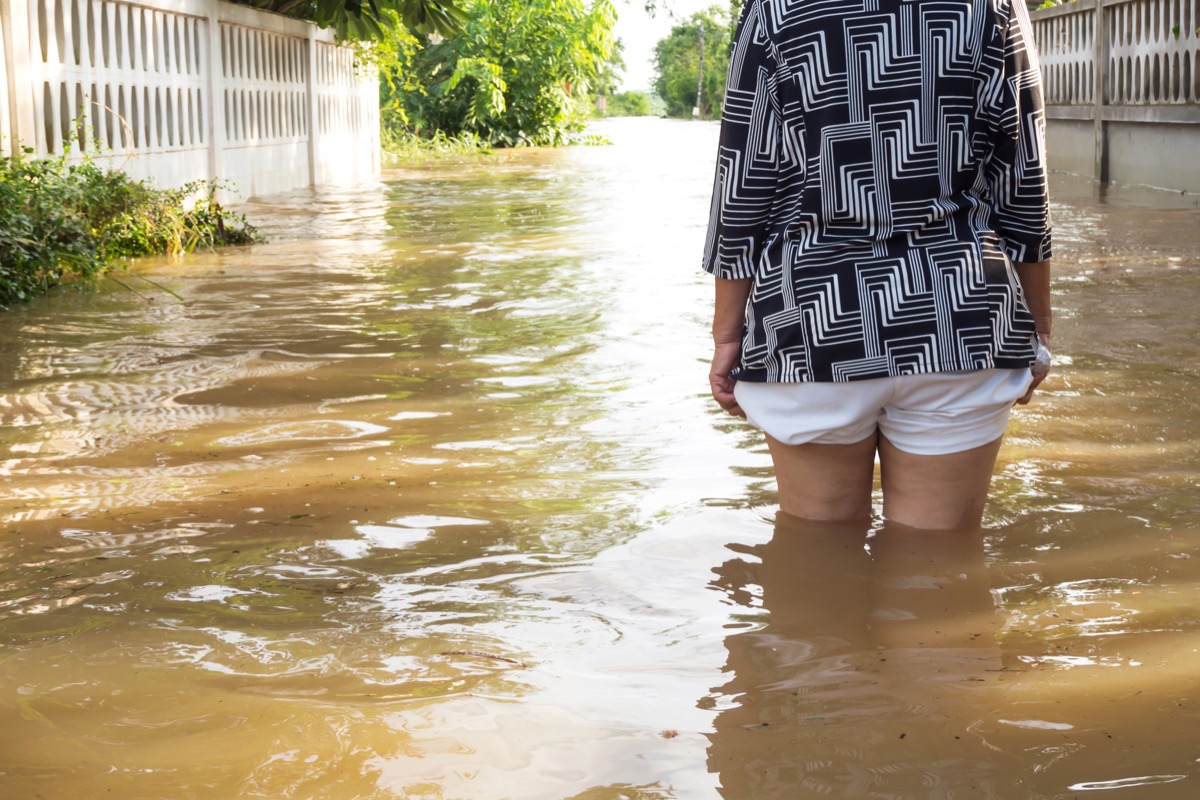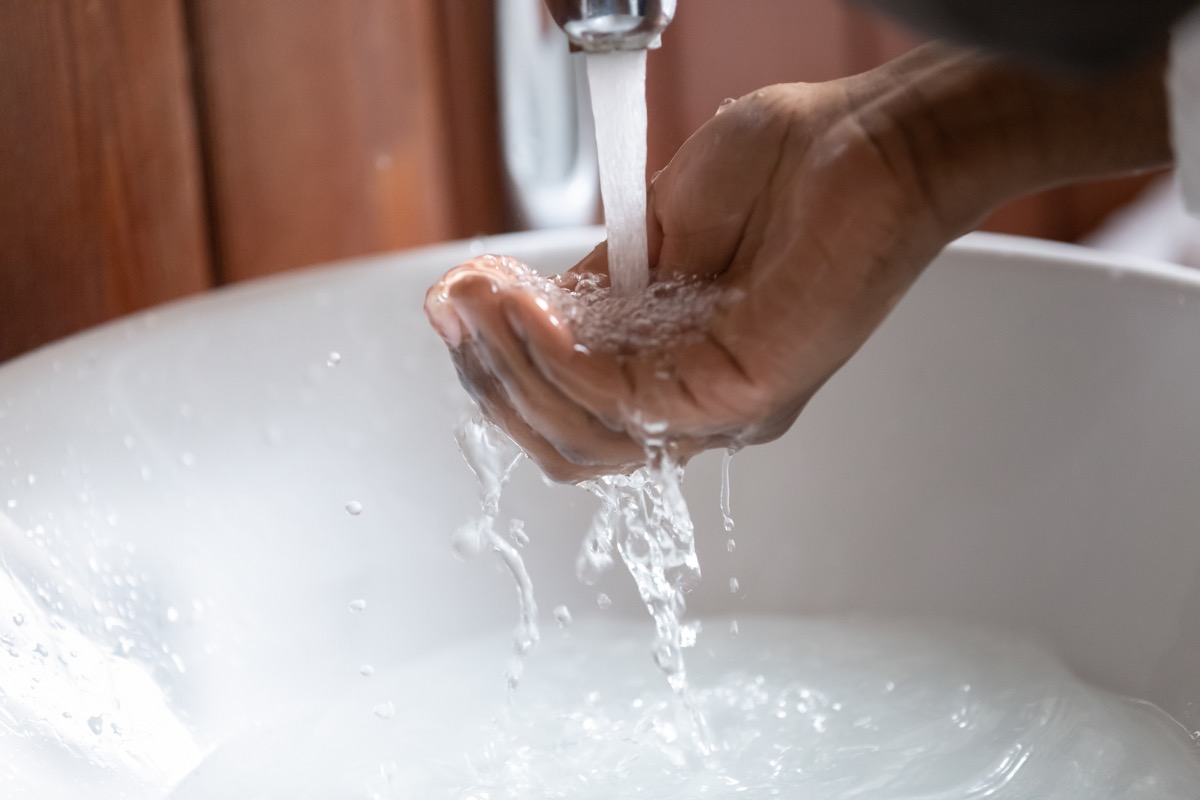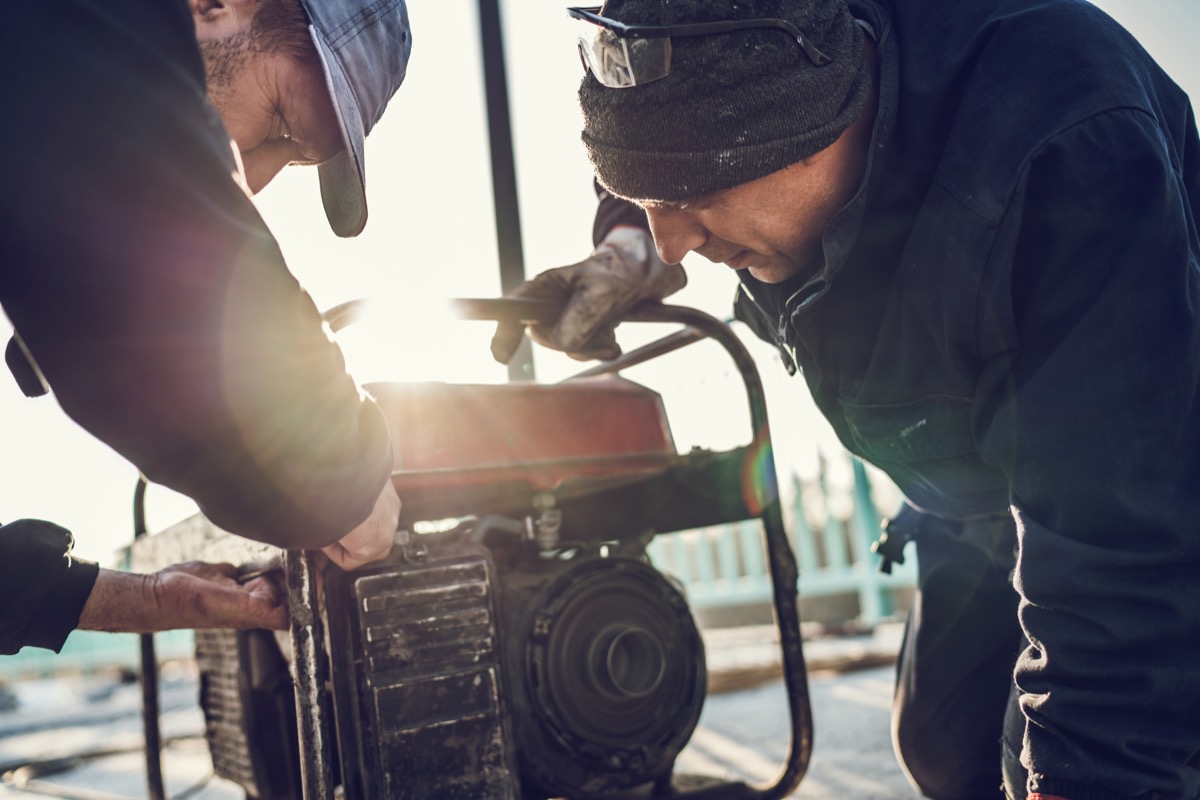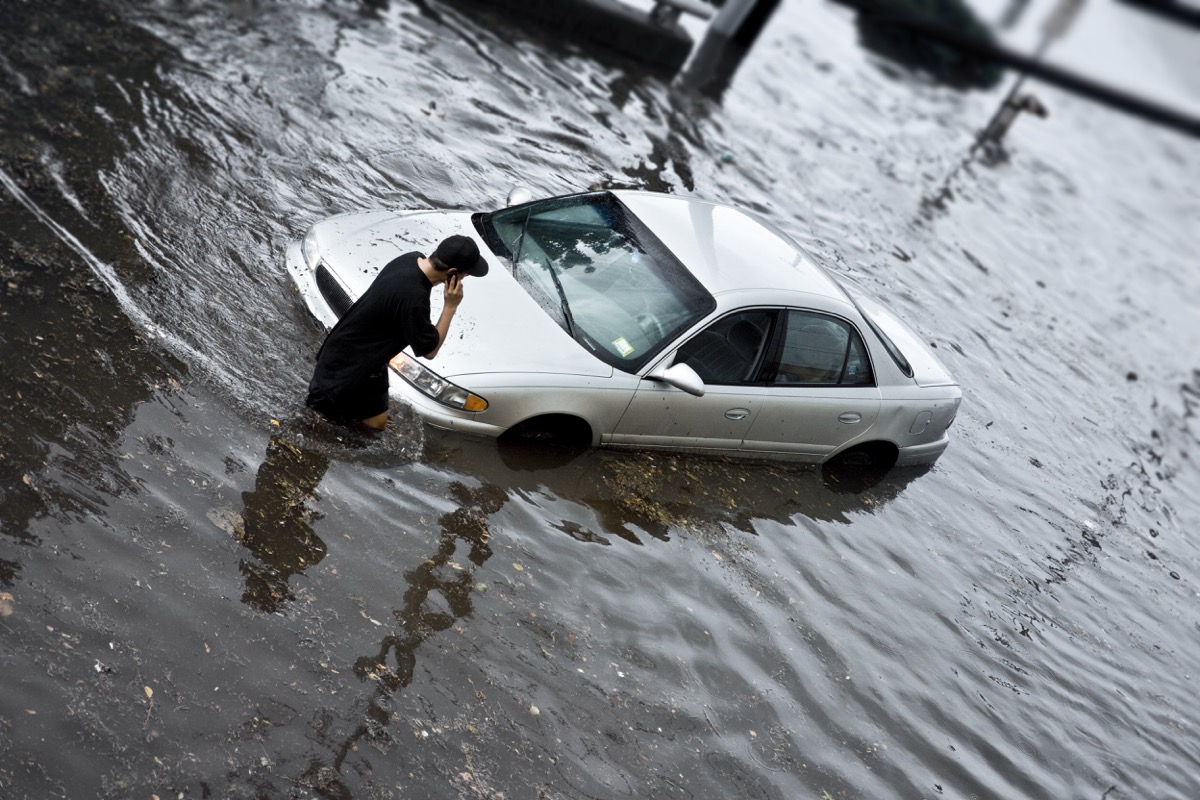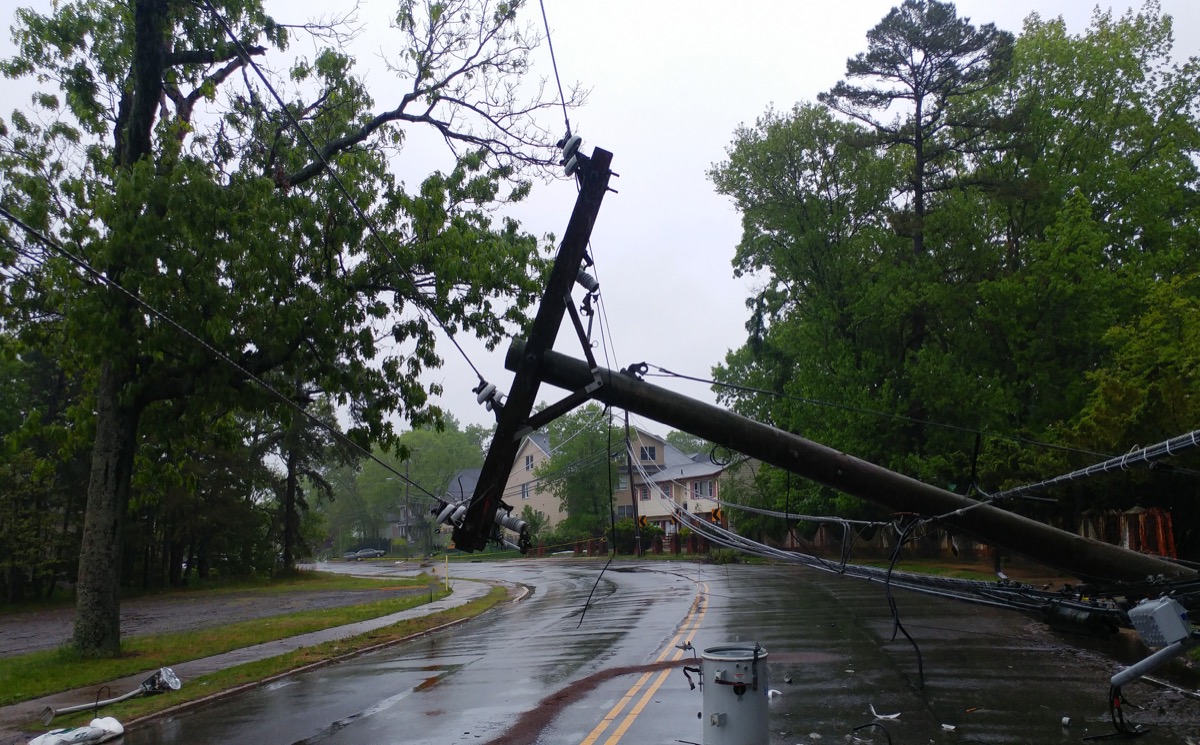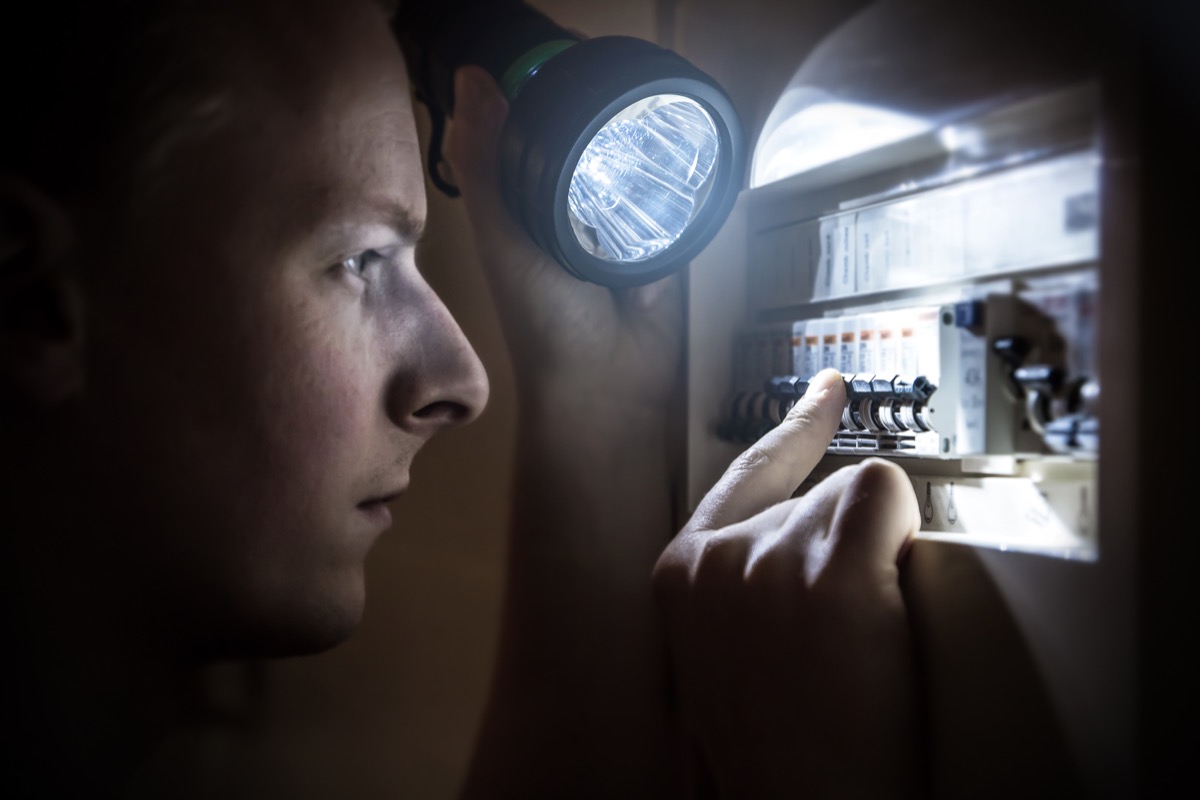Hurricanes can easily damage a building, even without you realizing it. The CDC warns people to not enter clearly damaged buildings until they’re determined safe by local authorities. And if your home or any building you’re in is making shifting or unusual noises, leave immediately. The CDC says “strange noises could mean the building is about to fall.” After a hurricane, many areas experience high levels of flooding. The CDC says you should never drive in flooded areas, as your vehicle cannot protect you from the floodwater. In fact, the CDC says your car is likely to “be swept away or may stall in moving water.” Instead, you should always follow warnings about flooded roads and turn around if you approach floodwater, no matter your route. And for more ways to stay safe no matter the disaster, check out these 27 Amazing Personal Safety Tips That Will Change Your Life. Your car isn’t the only thing that shouldn’t enter floodwater, however. The CDC says “floodwater can pose a drowning risk for everyone, regardless of their ability to swim.” Shallow water can be deadly for adults if swiftly moving, and dangerous for small children even if it’s just standing water. And for more on hurricanes this season, discover The Reason This Might Be the Worst Hurricane Season in Over 200 Years.ae0fcc31ae342fd3a1346ebb1f342fcb Another reason you shouldn’t venture into floodwater is because you don’t know what’s in the water, the CDC says. Floodwater can contain “human and livestock waste, household, medical, and industrial hazardous waste, coal ash waste that can contain carcinogenic compounds such as arsenic, chromium, and mercury, and other contaminants that can lead to illness.” That’s why they recommend you wash contaminated areas with soap and clean water as soon as possible, and if you don’t have access to soap or clean water, use alcohol-based wipes or sanitizer. The CDC also says you should “wash any clothes contaminated with flood or sewage water in hot water and detergent before reusing them.” Fuel-burning equipment like generators, charcoal grills, and camp stoves may be necessary to use after a hurricane. But these devices create carbon monoxide, which can cause sudden illness or death if it builds up in your home. The CDC says you should never use fuel-burning equipment “inside your home, basement, or garage.” Instead, they should be kept outside and at least 20 feet away from any window, door, or vent. If your car has been submerged or in contact with water following a hurricane, there could be lingering damage that could hurt you. The CDC says that “even if they are in floodwater, car batteries may still have an electrical charge,” so if you’re going to remove the battery, be careful. You should also be wearing insulated gloves and watch out for any acid that may have spilled from the damaged car battery. There also may be other electrical hazards both inside and outside your home after a hurricane or flood. The CDC says you should shut off electrical power and natural gas or propane tanks in your home to “avoid fire, electrocution, or explosions.” Moreover, you should never touch a fallen power line if one has been knocked down after the disaster. Instead, you should call your local power company to report fallen power lines. If a hurricane has knocked out your power, you will need to turn to a different source of light. However, for fire safety, the CDC always recommends using flashlights instead of candles. If you do have to use candles, the CDC cautions people to “keep them away from anything that can catch fire,” and to “always stay near lit candles.” And for more up-to-date information, sign up for our daily newsletter.
